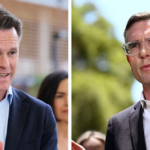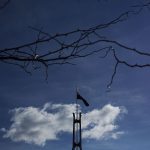Misconstruing misinformation

“The Conversation” 15/10/23 reported that world media coverage of the Voice referendum suggests that ‘misinformation’ fuelled latent racism in Australia. It is strongly inferred that this contributed decisively to the defeat of the Voice referendum.
Australians did not vote against self-determination for Indigenous people, they rejected the creation of a permanent bureaucratic maze, based on racial division, leaving the intended beneficiaries no better off.
It was always clear that the PM’s misjudgment would invite international disgrace. He was repeatedly warned that constitutional recognition of Indigenous people would not be approved if it was linked to the Voice.
It was the Australian media that persisted with misinformation by omitting the fact that Australians overwhelmingly support recognition. A lot of international reporting was based on news content generated within Australia. It can be argued, therefore, that Australian media indirectly brought our nation into disrepute, internationally.
An objection to recognition as a separate question was that it would be ‘merely symbolic’. The ‘yes’ campaign attempted to misinform the community by asserting that the future of Indigenous Australians depends entirely on non-binding advice to Parliament.
Indigenous leaders say that victimhood ends with self-determination. But why should self-determination for Indigenous people depend on a ‘Voice’ to Parliament? In other words, being on the outside looking in.
Indigenous electors outnumber the vote margin held by incumbents in enough electoral divisions to become a strong political force. Instead of a Voice TO Parliament, Indigenous people could choose to have more voices IN Parliament.
Advice provided by the Voice would have been considered by the government of the day and, if accepted, would be implemented by the existing National Indigenous Australians Agency (NIAA). That agency is run by a very capable Indigenous person and is responsible for advising government and “engaging effectively with Indigenous peoples to achieve measurable progress in closing the gap”.
If those who promoted the Voice genuinely believed it was indispensable to self-determination, they would now be highlighting alleged ‘deficiencies’ of the NIAA and demanding changes.
The fact is that the objectives of the NIAA are the same as those of the Voice.

Max Thomas, Dip. Agric. (retired) worked in the public sector and in private consulting on a range of land, water and waste management projects. He prepared guidelines for irrigation with recycled water for EPA Victoria and developed a number of Environmental Management Systems in the water industry.













